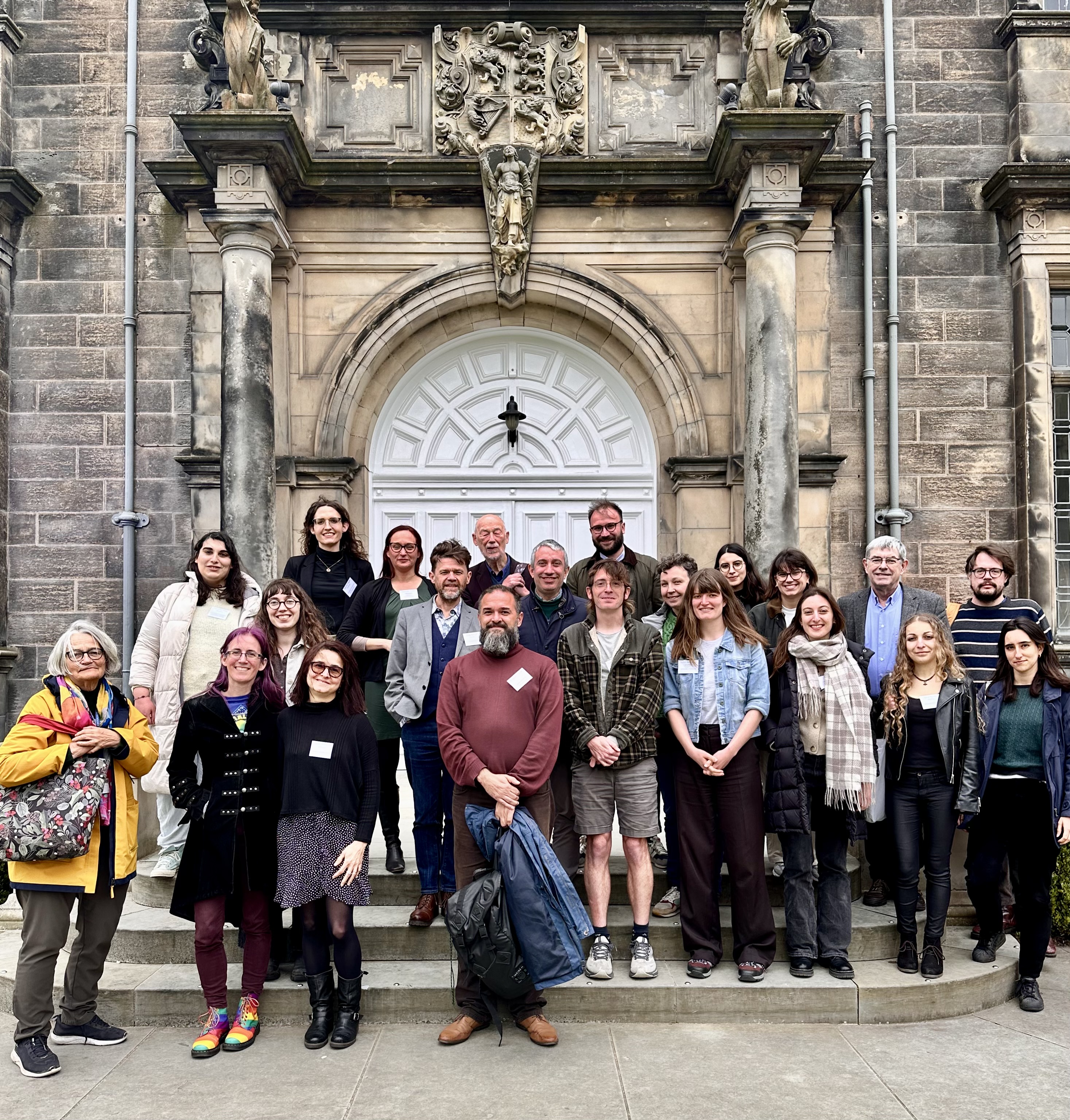Proofs, Rules, and Meanings, Arché Workshop
I’ve just emerged from two intense days of proof theory. Three of my graduate students, Sophie Nagler, Viviane Fairbank and Francisca Silva, organised a two-day workshop on proof theory and its connections to philosophy and other fields.

It was a delightful event, filled with good talks, great conversations, and I’ve emerged, buzzing with lots of new ideas. It was extra special to experience interactions between people who have been part of the field since its inception — Peter Schroeder-Heister invented the phrase proof-theoretic semantics, and our own Stephen Read has been publishing on proof theory since the 1980s — with some slightly more junior folks, like Catarina Dutilh-Novaes, Elaine Pimentel, Luca Incurvati, Sara Uckelman and me, who are well and truly established in the field — with the newer generation of younger researchers, like my former PhD student Bogdan Dicher (now a lecturer in philosophy at Witwaterstrand, Sara Ayhan (now a postdoc at Bochum), and the current crop of graduate students, including Sophie and Viviane, together with Robin Martinot (a student at Utrecht). Some undergraduate students from St Andrews dropped by and came to a few talks, and we had visitors from all around the world, both in person and online. Thanks to Sophie, Viviane and Francisca for pulling off such a worthwhile workshop.
Now that I’ve had a night to reflect and a day to recover, I can take stock and think about where we’ve got to. The workshop and the conversations we had over the last couple of days has underlined for me the wide range of work that’s done in proof-theoretic semantics. This ranges from the obvious connections with type theory, proof assistants and automated reasoning at the technical engineering end of the field, to philosophical questions about how the technical results of proof theory relate to the semantic concerns of traditional theories of meaning, and issues of reference, truth conditions and possible worlds model theory. But there was another strand to our conversations: Sara Uckleman and Stephen Read encouraged us to develop a nuanced account of the history of the use of proof-like concepts as people have attempted to understand our capacity to think and talk about the world. There was a level of curiosity and cross-fertilisation between approaches and different traditions that is deeply encouraging and enjoyable to be a part of.
This work has a depth and coherence that means that individual researchers can pursue their own questions without devoting too much time to defending their turf and fending off attacks from others who can’t see the point of addressing questions that way. (Students have been advised, even in the recent past, to not consider proof theory as an area of logic worth studying, on the grounds that it was a dead end and all the interesting questions were answered by the 1970s. No reasonable person could believe this now.)
If this workshop is any sign, the future of the field is bright. So many young people — and especially, so many young women — are putting their stamp on this research area, and it will be exciting to see how the research agenda will shift and grow in the years ahead.
